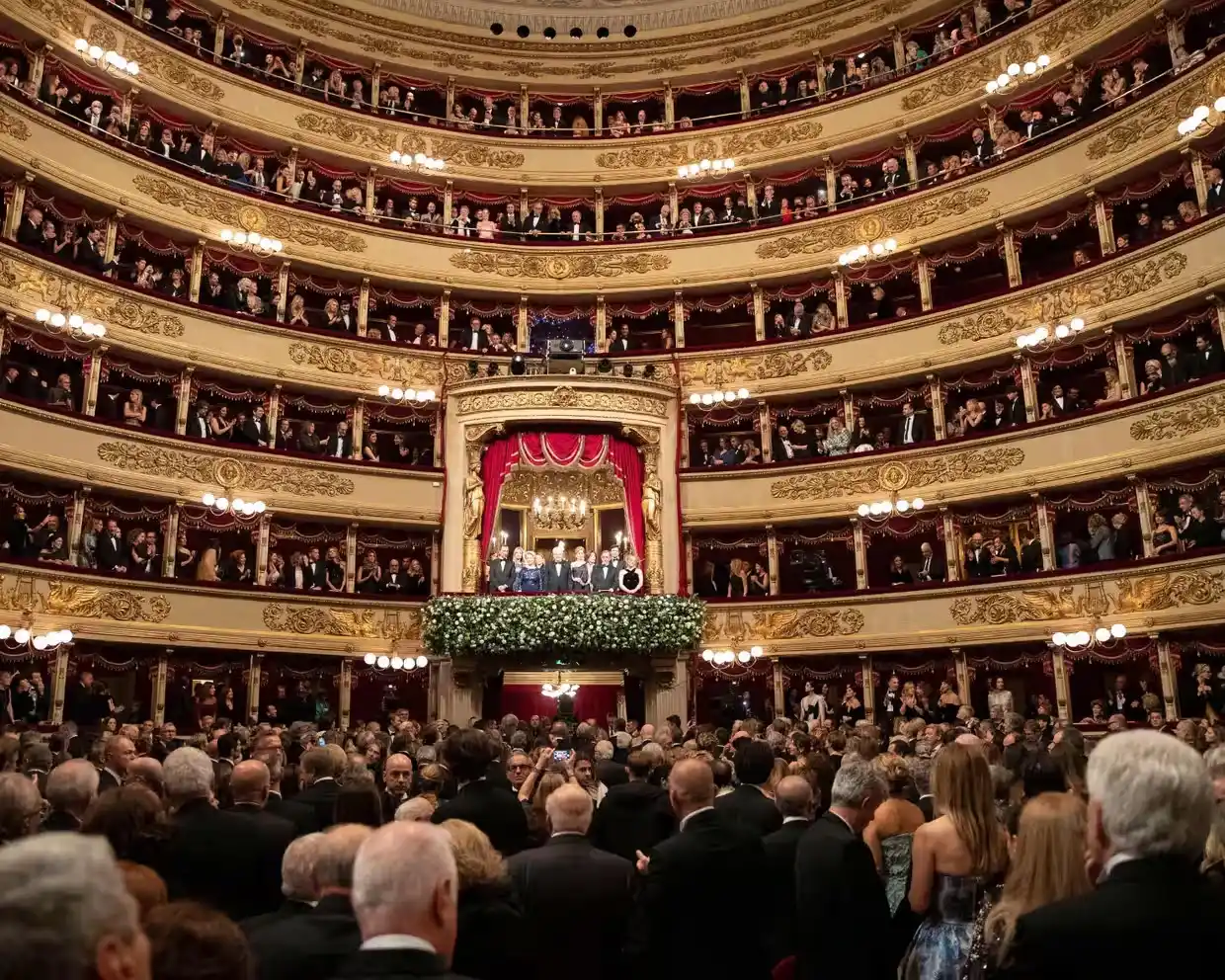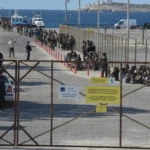Visitors to Milan’s famed La Scala opera house will no longer be allowed inside if they show up wearing shorts, tank tops, or flip-flops. The management of one of the world’s most prestigious theatres has officially reminded the public that attire must match the solemn and elegant atmosphere of the venue. Those who violate the dress code will not be permitted entry — and will not receive a ticket refund.
According to The Guardian, La Scala’s administration has placed a sign at the entrance urging guests to “choose clothing in keeping with the decorum of the theatre,” explicitly stating that tank tops, shorts, and flip-flops are not allowed. The warning is now printed on tickets and displayed on the opera house’s website. Notably, the restriction does not apply to kimonos or traditional Japanese footwear.
A Return to Formality: Dress Code as a Matter of Aesthetics
The initiative to enforce stricter dress rules isn’t new. In fact, the ban on beachwear was first introduced in 2015 — the year Milan hosted the World Expo, and La Scala remained open throughout the summer. The aim back then was to discourage people from arriving in swimsuits. However, the rule was not strictly applied in practice. The theatre’s former director, Frenchman Dominique Meyer, advocated for a more relaxed approach. In his youth, Meyer was criticized by fellow opera-goers in Paris for his “worker’s look,” a memory that shaped his more tolerant view on attire.
But times have changed. A spokesperson for La Scala explained that there is now a real need to enforce the rules — especially due to the recent summer heat, which has tempted some to prioritize comfort over decorum:
“The rules now need to be reinforced, especially due to the heat we’ve been experiencing. Some spectators were getting annoyed after seeing others not dress appropriately, for example in flip-flops, especially in a theatre where people are sitting shoulder to shoulder,” the spokesperson noted.
It’s important to note that the ban does not apply to women wearing sleeveless blouses or dresses, as long as the clothing is elegant. And according to Corriere della Sera, Japanese guests in traditional attire — including kimono and traditional sandals — are still welcome. The point is not cultural exclusion, but the avoidance of sloppy or inappropriate clothing.
Etiquette Under Full Review
The anti-beachwear rule is part of a broader overhaul of audience conduct at La Scala. The opera house now strictly prohibits bringing food or drinks into the auditorium and bans all photography or filming during performances. In addition, audience members are no longer allowed to place mobile phones on balcony railings — following an incident in which a phone fell and struck a person sitting below.
Before 2015, tickets carried a recommendation to wear “jacket and tie,” though it was not obligatory. Still, in Italy’s cultural tradition, there has always been an unspoken expectation that opera-goers appear in elegant or formal clothing, even if not in strict evening wear.
“It’s not right to dictate exactly how people should dress — but they do need to be dressed appropriately,” the spokesperson added with a touch of irony.
Opera as a Ritual, Not a Beach Outing
Like many historic European theatres, La Scala has long served not only as a musical institution but also as a social and cultural stage — where what you wear is part of the overall experience. In an age when the boundaries between casual and formal attire are increasingly blurred, La Scala is once again asserting its identity as a space where respect, refinement, and even a touch of old-fashioned elegance still matter.
As The Guardian notes, these measures may appear strict, but they serve as a reminder: attending the opera is not a trip to the park — it’s a cultural event that deserves to be treated as such.
This article was prepared based on materials published by The Guardian. The author does not claim authorship of the original text but presents their interpretation of the content for informational purposes.
The original article can be found at the following link: The Guardian.
All rights to the original text belong to The Guardian.


















